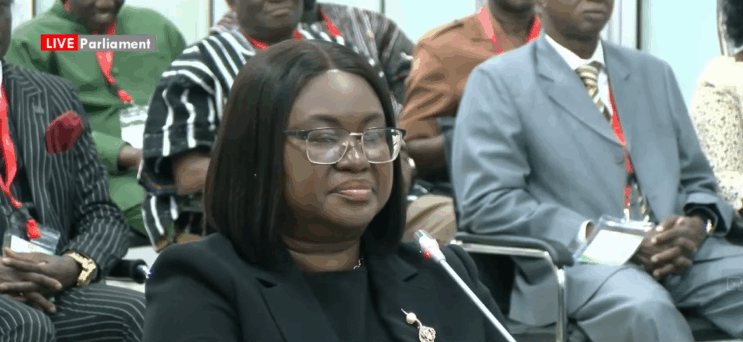
Supreme Court nominee, Justice Hafisata Amaleboba, has rejected suggestions that a university degree should be made a mandatory requirement for serving as a Member of Parliament (MP), arguing that parliamentary representation must remain rooted in the democratic will of the people.
Appearing before Parliament’s Appointments Committee on Wednesday, 18th June, Justice Amaleboba said academic qualifications should not override the right of citizens to choose who represents them, regardless of formal education.
“I do not think that there is any reason to insist that every Member of Parliament should have a university degree,” she stated. “Primarily, they are representatives of their people, and if their people think that they are competent enough to come to the House to represent them, I think that should be the case.”
Her comments came in response to a question from the Minority Leader, Alexander Afenyo-Markin, who sought her views on the ongoing public debate over whether MPs should possess at least a university degree.
Justice Amaleboba, however, drew a distinction between the roles of MPs and judges, explaining that while MPs are elected based on public confidence and trust, judges perform specialised, technical roles that require formal legal training.
“I believe that the two categories of functions are different. A judge is a professional and ought to be able to apply the law, because you are primarily a judge because you are a lawyer and you have legal knowledge — but there is no such requirement for Members of Parliament,” she clarified.
Her submission adds to the broader national discourse on access, equity, and merit in Ghana’s democratic institutions.




